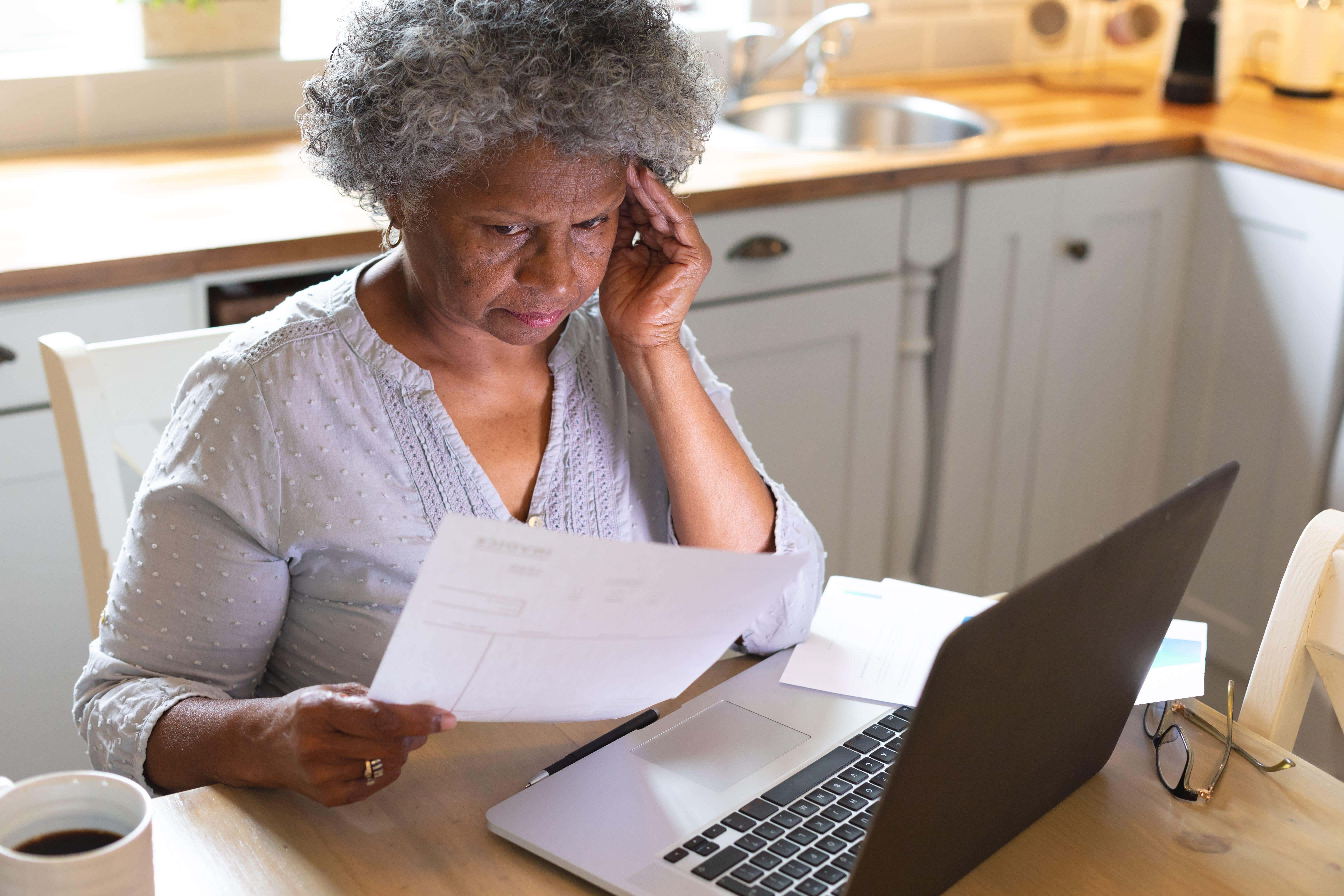Women are most likely to be worried about money right now – here’s why
As living costs soar, sleepless nights and concerns about retirement are particularly affecting women. By Vicky Shaw.

Your support helps us to tell the story
From reproductive rights to climate change to Big Tech, The Independent is on the ground when the story is developing. Whether it's investigating the financials of Elon Musk's pro-Trump PAC or producing our latest documentary, 'The A Word', which shines a light on the American women fighting for reproductive rights, we know how important it is to parse out the facts from the messaging.
At such a critical moment in US history, we need reporters on the ground. Your donation allows us to keep sending journalists to speak to both sides of the story.
The Independent is trusted by Americans across the entire political spectrum. And unlike many other quality news outlets, we choose not to lock Americans out of our reporting and analysis with paywalls. We believe quality journalism should be available to everyone, paid for by those who can afford it.
Your support makes all the difference.Female and worried about money? You’re not alone. In fact, women are more likely than men to be having sleepless nights over their finances right now, according to new research.
While soaring inflation, living costs and volatile markets are a concern for many people, women are feeling particularly downbeat, the findings from wealth managers Charles Stanley suggest.
Nearly seven in 10 (69%) women say rising living costs are what they worry about most, as do nearly half (48%) of men. Money worries are also disrupting people’s sleep, with 26% of women saying they’re having sleepless nights as a result, compared with 18% of men.
Overall, 30% of the UK adults surveyed say they feel consistently anxious – with 35% of women feeling this way, compared with 26% men – and only around a third (34%) of women say they are confident their finances will hold up against the rising cost of living. Men tended to feel slightly better here, with 49% having confidence in their finances.
Cost-of-living concerns are also particularly likely to be making women anticipate that they’ll need to work for longer to make up the shortfall in their budgets. Nearly two-thirds (64%) are expecting to work for longer to earn back what they’ve lost, as are 54% of men.
This could be because women, who are still particularly likely to take time out of work to care for family members, are particularly concerned about not having enough money to retire on, with 63% feeling this way, alongside 51% of men.
Family and friends are also more likely to be a source of financial support for women, with 46% saying they are relying on them for financial help, compared with 34% of men.
Emergency savings pots are also an area of greater concern for women. Six in 10 (61%) women are concerned about not being able to save easily for emergencies and using up all of their ‘rainy day’ funds, as are 46% of men.
There are some aspects of finances, however, where men were found to be more worried than women. Males are more concerned than women about having to dip into the inheritance they had planned to leave to loved ones (at 29% of men versus 27% of women).
They are also slightly more concerned about dipping into their own inheritance, left to them by someone else, with 23% of men voicing this concern, alongside 21% of women.
The research also found women are less likely to have every spoken to a financial adviser – more than half (52%) said they never have, compared with 44% of men. Of these, more than half (male and female) don’t think anything would ever prompt them to do so.
The survey of more than 2,000 people was carried out in June, before the most recent announcements about cost-of-living support and the raft of tax cuts unveiled in the mini-budget. Further details about the support with living costs available can be fount at gov.uk/cost-of-living.
Alex Price, director of financial planning at Charles Stanley, says: “It’s not surprising UK adults are concerned as we enter a period of economic uncertainty, the likes of which we haven’t seen since the 1970s – many people have never lived through this new reality of near double-digit inflation (Consumer Prices Index inflation stood at 9.9% in the 12 months to August).
“However, it is extremely concerning to see just how intensely women are feeling the pressure on their finances and wellbeing,” Price adds. “There is a silver lining, in that women are more open to professional help and by-and-large report positive experiences. With the help of a personal financial plan, women may find they do not have to work for longer, nor have sleepless nights over their finances.”

